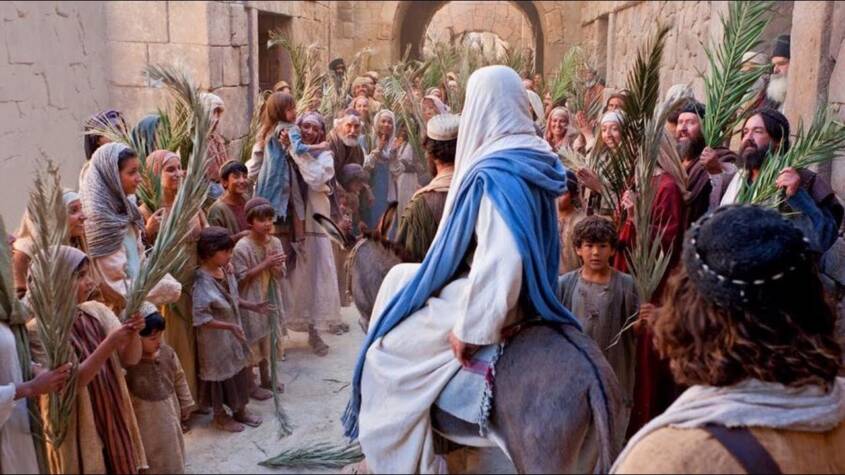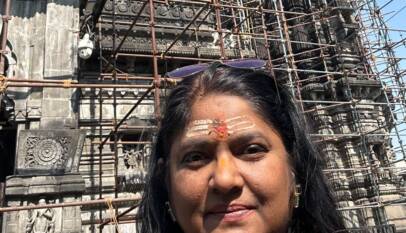Palm Sunday: A Prelude to Sacrifice and Victory
Palm Sunday stands as a significant event in the Christian calendar, marking the beginning of Holy Week, which culminates in Easter Sunday—the celebration of Jesus Christ’s resurrection. Observed by millions of Christians around the world, Palm Sunday commemorates Jesus’ triumphant entry into Jerusalem, an event recorded in all four canonical Gospels: Matthew, Mark, Luke, and John.

This day is rich in symbolism, prophecy, and meaning, serving both as a moment of joy and a prelude to the deep sorrow and eventual triumph that characterize the days to come. To understand Palm Sunday fully, it’s essential to delve into its biblical origins, its historical and spiritual significance, and how it continues to inspire worship and reflection among believers globally.
Why is it Called Palm Sunday?
The name “Palm Sunday” derives from the palm branches that the crowd in Jerusalem laid down in front of Jesus as he entered the city riding on a donkey. This act was a customary way to honor someone of great respect—often a king or victorious leader.
In the Gospel of John (12:13), it is written:
“They took palm branches and went out to meet him, shouting, ‘Hosanna! Blessed is he who comes in the name of the Lord! Blessed is the king of Israel!'”
The palm branch symbolized victory, peace, and eternal life in the ancient Jewish and Greco-Roman world. By laying them before Jesus, the people acknowledged Him as the prophesied Messiah and King—though, as events would reveal, their expectations of a political or military savior would soon clash with the spiritual kingdom Jesus came to establish.

Biblical Background and Fulfillment of Prophecy
Palm Sunday is rooted in prophecy, most notably from the Old Testament book of Zechariah 9:9, which declares:
“Rejoice greatly, Daughter Zion! Shout, Daughter Jerusalem! See, your king comes to you, righteous and victorious, lowly and riding on a donkey, on a colt, the foal of a donkey.”
By choosing a donkey instead of a horse—a traditional symbol of war—Jesus entered as a Prince of Peace, not a conqueror. His entry symbolized humility, obedience, and a fulfillment of God’s promise to His people. The people’s shouts of “Hosanna” (meaning “save us” or “save now”) were both a cry for salvation and a recognition of Jesus’ divine authority.
However, this enthusiastic reception would soon turn into cries of “Crucify him!” within days. Palm Sunday thus stands as a moment of divine irony—a welcome celebration of a king heading toward crucifixion.
The Significance of Palm Sunday
Palm Sunday carries deep spiritual and theological meaning:
- A Reminder of Jesus’ Mission: It marks the beginning of the journey toward the cross, reminding believers that Jesus came not to be served but to serve and give His life for humanity.
- A Lesson in Humility: Jesus’ choice to ride on a donkey, not a chariot or horse, teaches humility and servant leadership—a sharp contrast to worldly expectations of power and greatness.
- The Contrast of Crowds: The crowds who praised Jesus later demanded His death. Palm Sunday reminds us of how quickly human allegiance can change and calls for a deeper, lasting faith.
- Prophetic Fulfillment: It confirms Jesus as the promised Messiah, fulfilling prophecies made centuries before His birth.
- Beginning of Holy Week: It sets the tone for the spiritual journey Christians take through Holy Week—reflecting on Jesus’ suffering, death, and ultimate resurrection.
How Christians Celebrate Palm Sunday Worldwide
Across denominations—Catholic, Protestant, Orthodox, and others—Palm Sunday is commemorated with unique customs and services, unified by the central theme of Jesus’ entry into Jerusalem.
- Distribution of Palms
In many churches, palm branches or their substitutes (like olive or willow branches in areas without palm trees) are blessed and distributed to congregants. These palms are often waved during processions, reenacting the Gospel scene, and later taken home as sacred symbols. Some are shaped into crosses and kept as reminders of the holy season.
- Church Processions and Readings
Many Christian communities hold Palm Sunday processions, starting outside the church and entering together while singing hymns like “All Glory, Laud, and Honor.” The readings for the day focus on Jesus’ triumphal entry and the Passion narrative.
- Passion Sunday
In the Catholic Church and some other liturgical traditions, Palm Sunday is also known as Passion Sunday, marking a transition in the liturgy from celebration to somber reflection. The reading of the Passion narrative (the account of Jesus’ suffering and death) prepares the hearts of the faithful for the events of Good Friday and Easter.
- Art and Music
In many places, Palm Sunday inspires artistic expressions through sacred music, choir performances, and dramatic presentations. In some cultures, children participate in reenactments of Jesus’ entry into Jerusalem, riding donkeys or donning robes and crowns.
- Local Traditions
In Spain and Latin America, Palm Sunday processions can be elaborate, with statues, costumes, and candlelit vigils.
In Ethiopia, palm branches are woven into intricate crosses.
In the Philippines, believers often bring beautifully woven palm fronds to be blessed, which are then placed on doors or windows for protection and blessing throughout the year.
Palm Sunday’s Relevance Today
While rooted in ancient events, Palm Sunday remains relevant in today’s world for several reasons:
- A Call to Reflect on True Kingship
Palm Sunday challenges modern ideas of power and success. Jesus’ entry into Jerusalem redefines greatness—not through domination but through service, compassion, and sacrifice. It’s a call to all Christians to examine who or what they exalt in their lives.
- A Personal Invitation
Just as the crowds welcomed Jesus into Jerusalem, Palm Sunday invites individuals to welcome Him into their hearts. But unlike the fleeting cheers of the crowd, it calls for a lasting commitment, even when following Christ becomes difficult.
- A Preparation for Easter
It reminds Christians to pause and prepare spiritually for Easter—not just as a celebration of the resurrection but as a journey through the cross. This week is a time for self-examination, repentance, and renewal of faith.
Palm Sunday in Contemporary Life
Though it recalls an event from over 2000 years ago, Palm Sunday continues to resonate today:
- A Different Kind of King
Palm Sunday challenges cultural notions of success and power, pointing instead to a King who reigns through mercy, not might.
- A Call to Personal Commitment
The day invites us to welcome Christ into our lives—not just with fleeting enthusiasm, but with deep, lasting devotion.
- A Spiritual Preparation
It serves as the opening movement in the sacred symphony of Holy Week, preparing believers to reflect, repent, and rejoice.
Conclusion
Palm Sunday is not just a memory—it is a living invitation. It invites us to see Jesus not as the crowd did—through the lens of temporary hope or political expectation—but as the Savior who brings eternal peace through His death and resurrection.
As Christians around the world lift their voices in “Hosanna,” may we also open our hearts to walk with Christ—not just in celebration, but through the cross, and into resurrection life.
References
- The Holy Bible, New International Version (NIV) – Matthew 21:1–11; Mark 11:1–11; Luke 19:28–44; John 12:12–19
- Zechariah 9:9 – Old Testament prophecy of the Messiah’s entrance
- Mark 10:45 – Jesus on His mission to serve and give His life
- Catholic Encyclopedia – Palm Sunday Liturgical Practices
- Britannica.com – “Palm Sunday: Christian Holiday”
- The Orthodox Church in America – “Feast of the Entrance of the Lord into Jerusalem”
Team Maverick.
MoS Savitri Thakur Meets Guatemala Vice-Minister, Engages Indian Community in New York
On the margins of the Commission for Social Development in New York, Union Minister of Sta…




















